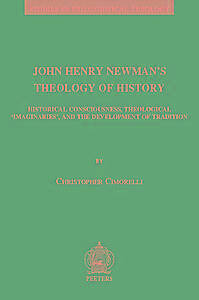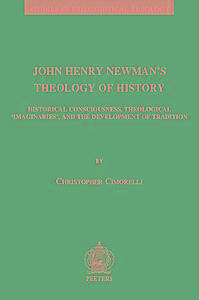
- Afhalen na 1 uur in een winkel met voorraad
- Gratis thuislevering in België vanaf € 30
- Ruim aanbod met 7 miljoen producten
- Afhalen na 1 uur in een winkel met voorraad
- Gratis thuislevering in België vanaf € 30
- Ruim aanbod met 7 miljoen producten
Zoeken
John Henry Newman's Theology of History
Historical Consciousness, Theological 'Imaginaries', and the Development of Tradition
C Cimorelli
€ 78,00
+ 156 punten
Omschrijving
This monograph delineates John Henry Newman's 'theology of history', which refers to his theological understanding, or 'view', of history that one finds pervading his work like a rich atmosphere. Newman's view led to his crafting of provisional theories that not only were more historically conscious, but also could support and promote revealed religion and religious epistemology in the present. This project traces these developing theories and the presuppositions on which they rested, as well as distills from them Newman's 'theological imaginary', which can be understood as his 'idea' of the church, an idea which he believed must become manifest in the world. Newman's theology of history is thus inextricably bound up with the realization of Christianity in its authentic ecclesial manifestation. This monograph highlights the import of Newman's theology of history for our own theological 'imaginaries' in the present, post-Vatican II context, ultimately developing an original 'relational-developmental model of doctrine'.
Specificaties
Betrokkenen
- Auteur(s):
- Uitgeverij:
Inhoud
- Aantal bladzijden:
- 368
- Taal:
- Engels
- Reeks:
- Reeksnummer:
- nr. 60
Eigenschappen
- Productcode (EAN):
- 9789042934382
- Verschijningsdatum:
- 31/12/2017
- Uitvoering:
- Paperback
- Formaat:
- Trade paperback (VS)
- Afmetingen:
- 160 mm x 239 mm
- Gewicht:
- 557 g

Alleen bij Standaard Boekhandel
+ 156 punten op je klantenkaart van Standaard Boekhandel
Beoordelingen
We publiceren alleen reviews die voldoen aan de voorwaarden voor reviews. Bekijk onze voorwaarden voor reviews.











